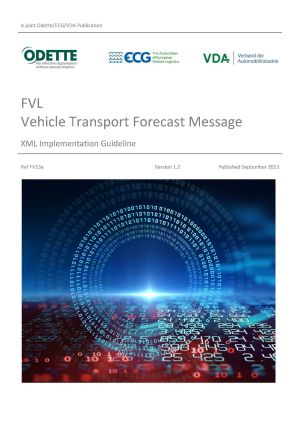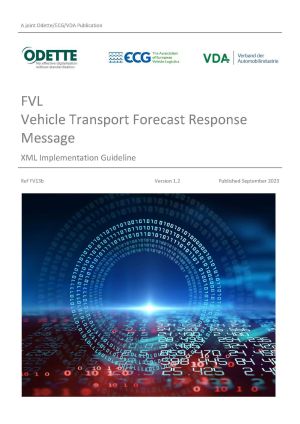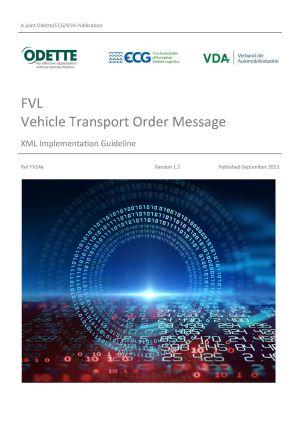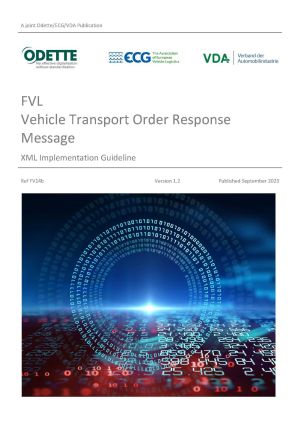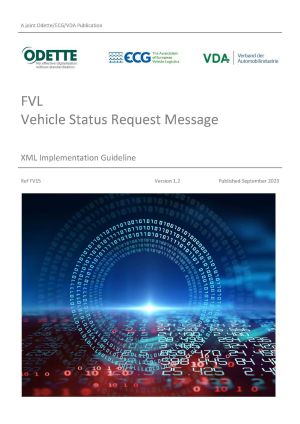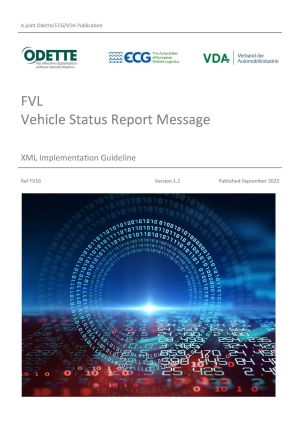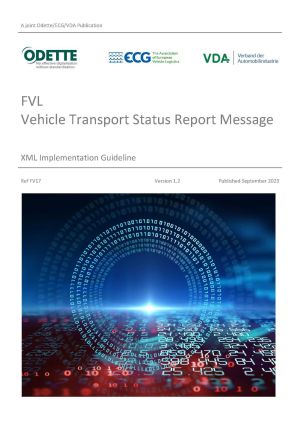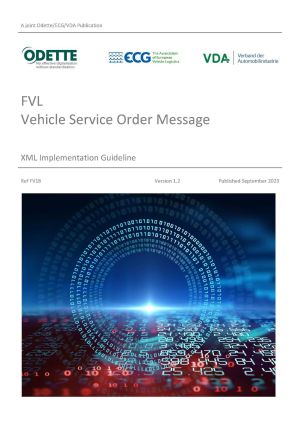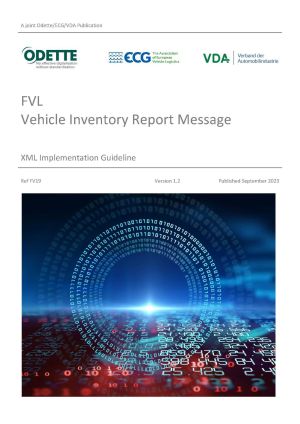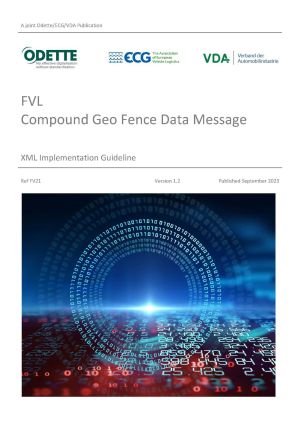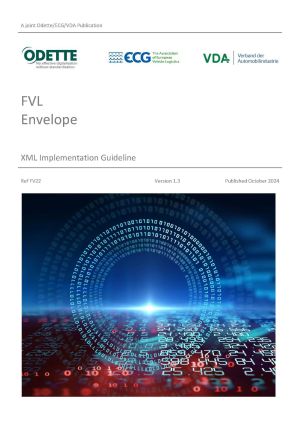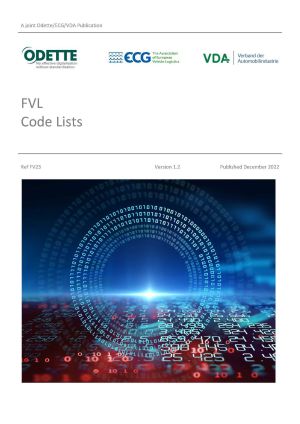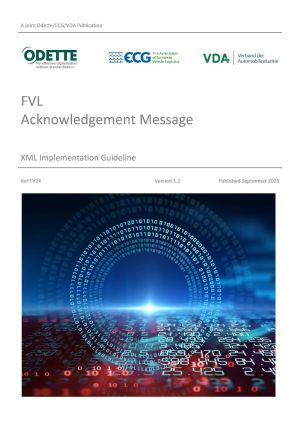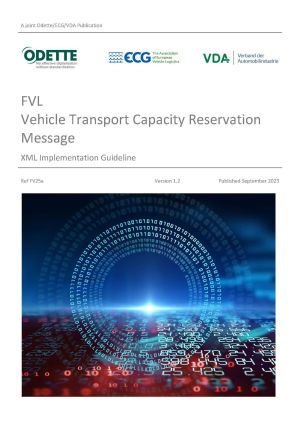Finished Vehicle Logistics
Digitalising Vehicle distribution. A cooperation between Odette and ECG


About
Finished vehicle logistics concerns the activities involved in the movement of a vehicle from the time it leaves the OEM production line until it reaches the dealer or final customer. Besides the actual transport of the vehicle, which can be made by road, rail, sea and even air, other important activities include storage, post-production modification, maintenance, repair and pre-delivery inspection.
This is a highly specialised sector of the transportation industry with very specific requirements but while the digitalisation of supply chain processes upstream from the vehicle manufacturers has been underway for many years, the downstream processes have been somewhat overlooked in the drive towards standardisation. Each major player developed their own proprietary solution which posed a serious challenge for logistics service providers and limited the flexibility of OEMs to improve their distribution processes.
In 2019 Odette and ECG, the Association of European Vehicle Logistics, formed an alliance to share experience and develop standards that meet the business requirements of both the OEMs and their service providers in outbound logistics.
The first result of this alliance was a set of UN/EDIFACT and XML messages covering the complete FVL communication process. Published in 2020, this message set is now being implemented by several vehicle manufacturers, compound operators and vehicle forwarders and has seen further enhancements arising from the implementation experience. Following this initial success, ECG and Odette have worked together to produce a set of KPIs for FVL and a standardised VIN label to make vehicle processing more efficient and to include the latest information requirements such as Fuel Type.
News
-
news
FVL digitalisation continues apace
05 Dec 2024
The deployment of standard digital messages to support communication across all Finished Vehicle Logistics processes continues across the industry with more implementations planned. Odette and ECG are also planning the next steps to help automotive companies and finished vehicle LSPs streamline their invoicing processes and meet the upcoming ViDA regulatory requirements.
-
news
OEM feedback leads to revised VIN label standard
25 Jun 2024
In 2022, Odette and ECG (Association of European Vehicle Logistics) worked together with OEMs and Finished Vehicle LSPs, to establish a standard for the content, design, location and quality of vehicle distribution labels, aka VIN labels. Twelve months later, feedback from OEMs concerning their implementation plans has resulted in some revisions to the standard.
-
news
Odette2025 Conference details announced
25 Jun 2024
Preparations for the 23rd Odette International Conference and Exhibition are now underway so make sure that you block 26/27 May 2025 in your calendar for this must-attend event in Bratislava.
Initiatives
Resources
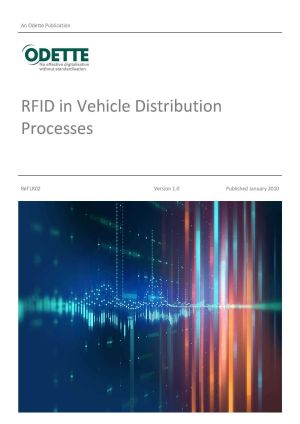
RFID in Vehicle Distribution Processes
This Odette recommendation describes the processes and methods of tracking and tracing vehicles in the distribution processes from factory to dealer using RFID technology and a smart label. It has been developed to move towards achieving widespread standardisation of RFID component usage, tag data storage and RFID technology implementation across vehicle distribution chains.
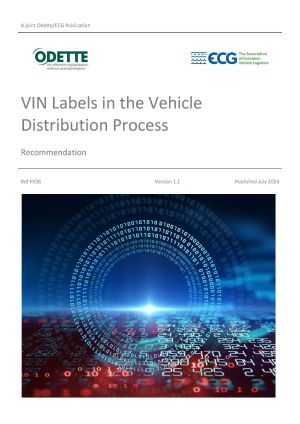
VIN Labels in the Vehicle Distribution Process
Developed by Odette and ECG, this recommendation has the following objectives:
- Define a standard location and fixing method for the vehicle identification label
- Recommend a size and layout for the vehicle identification label
- Define a minimum content for the vehicle identification label
- Recommend a bar-coding standard
- Provide recommendations for the quality of the vehicle identification label
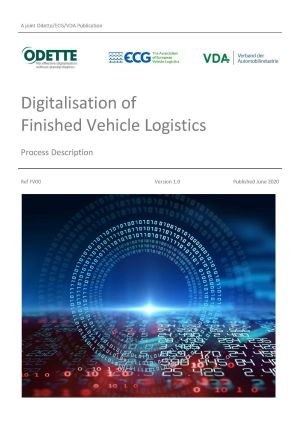
Digitalisation of Finished Vehicle Logistics
This Recommendation covers typical logistics and service processes undertaken in the distribution of finished vehicles between vehicle manufacturers and their dealerships or other end customers. It specifies standard electronic messages for automated data exchange between vehicle manufacturers (or other shippers) and providers of logistic services. These logistics services can include transport, storage, maintenance, repair and any other actions that may be required during the movement of vehicles from the manufacturer to the dealership.
A set of messages associated with this Recommendation has been developed to cover all communication processes currently defined as being required between partners (vehicle shippers and logistics service providers) in the Finished Vehicle distribution chain.
The Transport Capacity Reservation process was added in Version 1.2
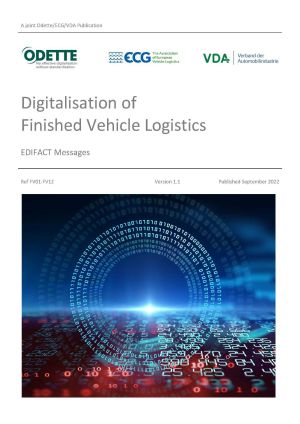
FVL EDIFACT Messages
EDI Implementation Guidelines
A suite of 12 EDIFACT messages have been developed jointly by ECG, Odette and VDA to cover the entire outbound logistics processes as described in the Finished Vehicle Logistics Process Description (FV00). The publication also includes example use cases and sample messages for each logistics process.
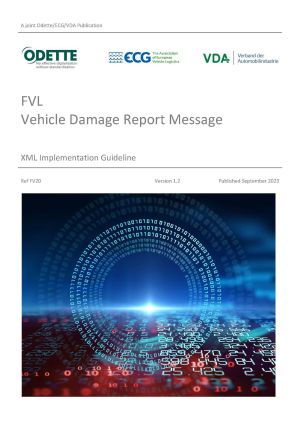
FVL Vehicle Damage Report Message
XML Implementation Guideline
Sent to communicate damage information from the LSP to the OEM.
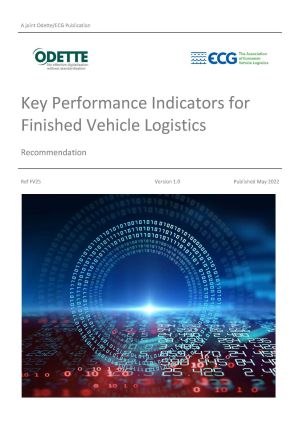
Key Performance Indicators for Finished Vehicle Logistics
Provides a consolidation of existing and new KPIs for use between OEMs and logistics service providers involved in the transport of the finished vehicles and their interim storage during the transport process.
Includes a definition of 9 indicators (objectives, scope, how to measure) and a description of application and communication conditions.
